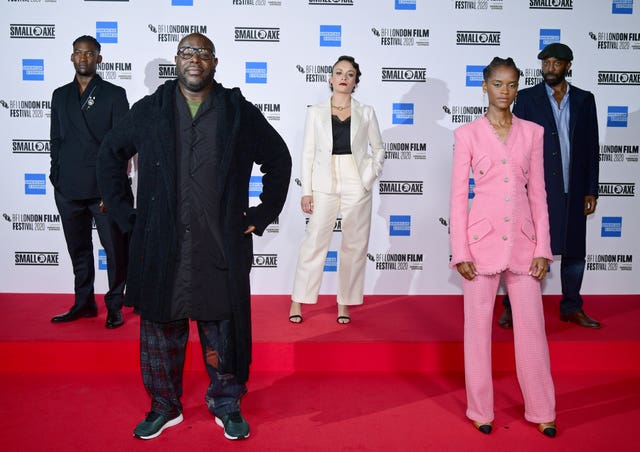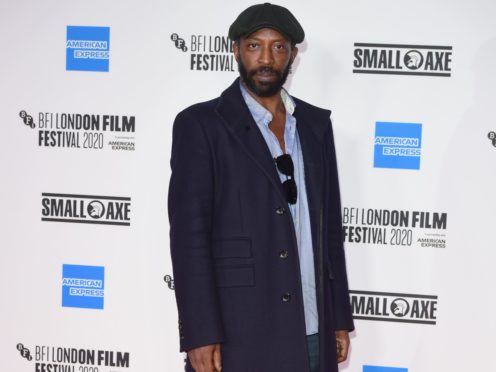Bafta nominee Shaun Parkes has said the BBC anthology series Small Axe coincided with a “build-up of anger” following the murder of George Floyd in the United States.
The series, created, written and directed by Sir Steve McQueen, is made up of five original films set from the late 1960s to the mid-1980s, each telling a story rooted in London’s West Indian community.
It is a frontrunner for the Bafta TV awards on Sunday, where it has six nominations, having already picked up a string of gongs at the Bafta craft awards.

Parkes is nominated in the leading actor category for his performance as Frank Crichlow in Mangrove, which follows the march of 150 protesters of West Indian, African and South Asian heritage in Notting Hill, west London, to local police stations in protest against police harassment in their communities, including the Mangrove restaurant.
Crichlow was among the nine protesters who were arrested and charged with incitement to riot.
Parkes told the PA news agency: “From the moment I read the script and knew that the BBC were doing it, I thought: ‘Hmm, this is about as real as I’ve seen for a long time.’
“It’s a real story, not a harrowing story so much as it’s a tough watch for some, I know people who have watched it two, three, four times and they cry at certain bits every time.
“As I read it, I believed: ‘Ah, this is new.’ And of course, you have to remember this was the middle to end of 2019, so none of this stuff (George Floyd’s murder in Minneapolis in May 2020 and Black Lives Matter protests) had happened.”
He added: “But last year, it’s very hard for me to explain just how mad the whole thing was, there was so much of a build-up of anger.
“Some people were getting depressed already before George Floyd and stuff like that, people were already biting fingernails just about life, and just at the height of that, this thing happens in America, where it again affects the whole world.
“There was a lot of anger, a lot of angry debates, a lot of people talking at each other, not too many people talking to each other.
“And then along comes this series that, without pointing fingers, without being worthy, without being angry, just tells a bunch of stories that most people in this country don’t remember.
“I think people were able to just sit there and watch something objectively without feeling they were being preached at.
“And I think a lot more of that is needed, not necessarily just with the subject matter. But I just think it was seemingly quite cathartic for people.”
The Bafta television awards will be handed out on Sunday June 6.
